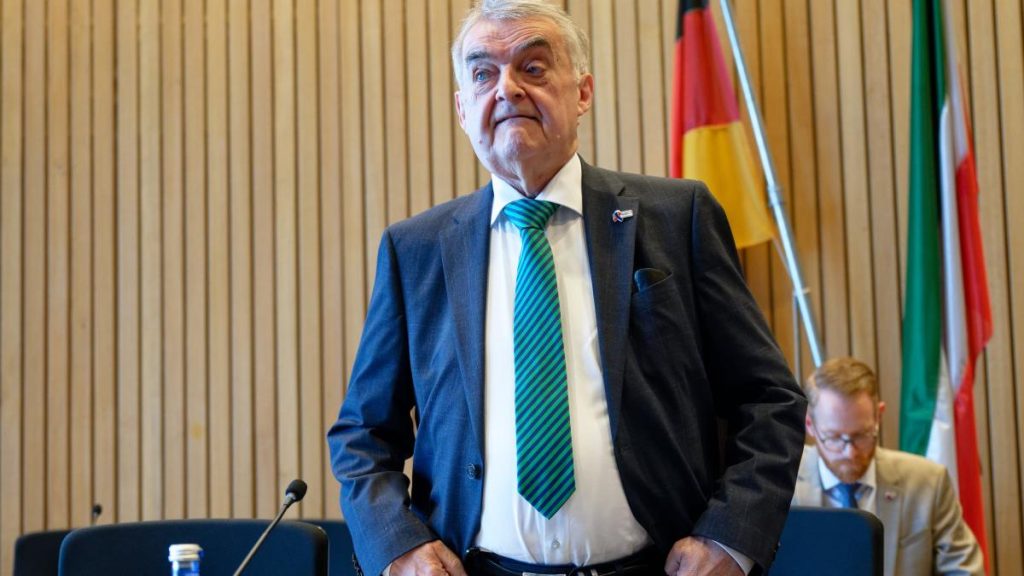The Minister of the Interior of North Rhine-Westphalia, Herbert Reul, faced a heated special session during which he was warned against allegations of being influenced by a lobbyist. The lobbyist in question, Claus B., is currently under investigation for allegedly being involved in a human trafficking ring that facilitated illegal German residence permits for wealthy individuals from China and the Arab region. B. had also financially supported Reul’s re-election campaign in 2022 with donations to his party. Although the donations are not part of the investigation, questions are raised about the influence of lobbying on political decisions.
During the special session, Reul defended himself by stating that he had no knowledge of B.’s criminal activities and that the donations did not influence his decisions. He claimed that his interactions with B. were based on his interest in developing connections in the business sector to enhance discussions on cybercrime prevention. Despite admitting that it may have been unwise politically and morally, Reul maintained that the meetings were not unusual and that it is within the boundaries of political engagement to meet with lobbyists.
Opposition parties in the state parliament, however, questioned the preferential treatment given to B. by Reul, pointing out that it is concerning when a donor has direct access to a minister for their own interests. The meetings between Reul and B., which continued even after the election, raised suspicions about potential financial incentives for B. in facilitating access to the minister. Reul defended his open-door policy for discussions, emphasizing his commitment to engaging with various stakeholders in the political landscape.
Reul conceded that in hindsight, meeting with B. may not have been the best decision and acknowledged the potential risks of involving lobbyists in political matters. He reassured the parliament that he had no involvement in B.’s criminal activities and highlighted the importance of transparency and accountability in political interactions. Despite facing continued scrutiny and questions from the opposition, Reul remained steadfast in his defense of his actions and maintained that his primary focus was on serving the interests of the public.
As the discussion continued in the parliament, Reul reflected on the challenges of navigating political relationships and the need for maintaining integrity in public office. While admitting to potential lapses in judgment, he reaffirmed his commitment to upholding ethical standards and ensuring accountability in his interactions with lobbyists and donors. The ongoing investigation into B.’s alleged criminal activities and his ties to political figures like Reul underscored the complex nature of political influence and the challenges of managing relationships in the public sphere.


